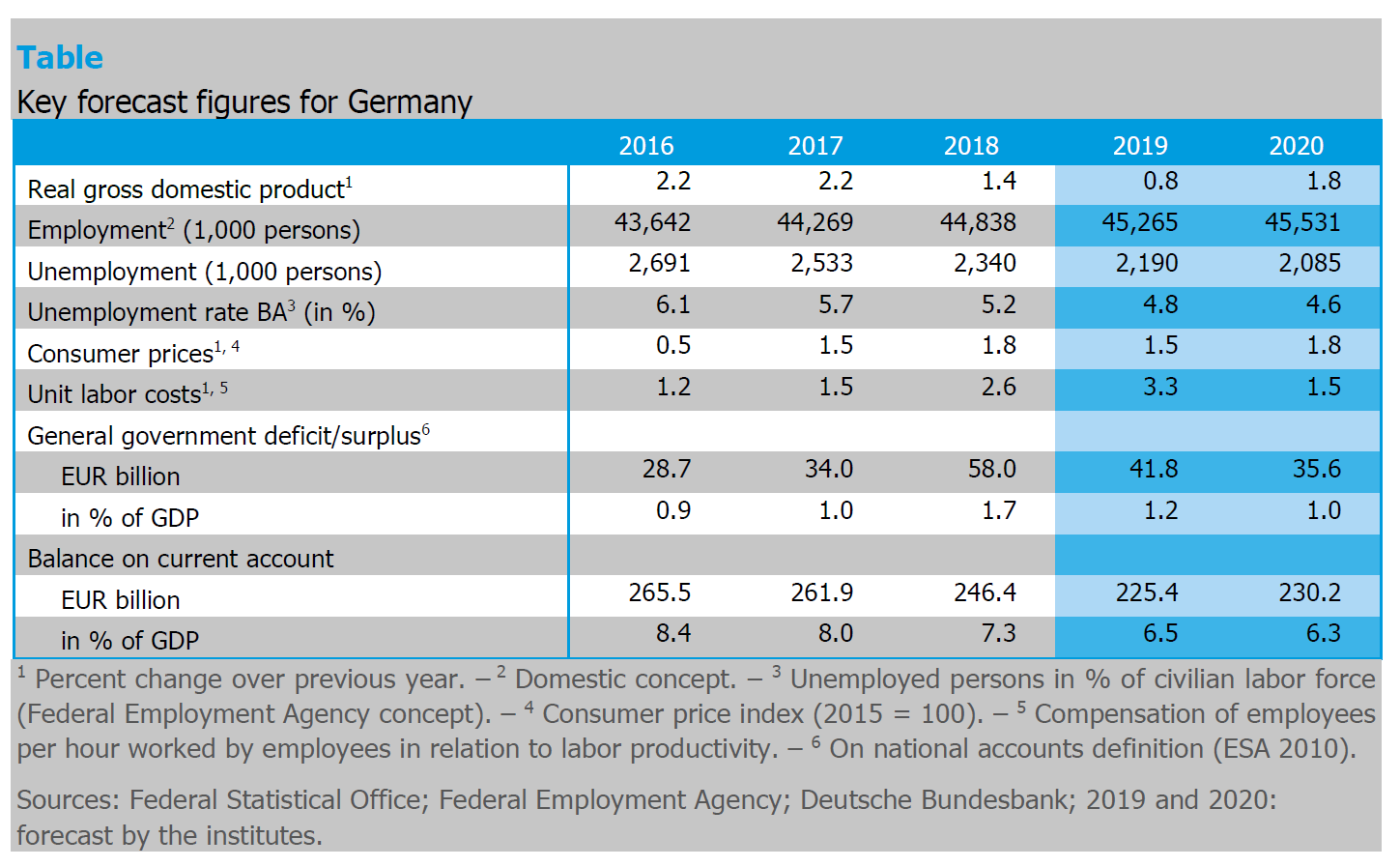Significant cooling of German economy – High Political Risks
Germany’s leading economics research institutes and their international partners have revised their forecasts for economic growth in 2019 significantly downward. They expect Germany’s GDP to increase by 0.8%. This is more than one percentage point less than in autumn 2018, when the forecast was still for 1.9% growth. In contrast, the institutes confirm their previous forecast for 2020: GDP is expected to increase by 1.8%. These are the results of the Joint Economic Forecast for spring 2019.
“The long-term upswing of the German economy has come to an end,” says Oliver Holtemöller, head of the Department of Macroeco-nomics and Vice President of the Halle Institute for Economic Research (IWH), which coordinated this spring’s report. The report concludes that political risks have further clouded the global economic environment. However, the economic slump in the second half of 2018 is due primarily to obstacles to production in industry. “We still consider the chance of a pronounced recession to be slight,” Holtemöller adds. The forecast was completed as of March 29, 2019, when it still seemed that a hard Brexit would be avoided. This has now become less likely, but is still possible. However, if a no-deal Brexit occurs, economic growth this year and the next is likely to be significantly lower than indicated in this forecast.
Employment growth is expected to lose momentum, but the number of people in employment will rise from 45.3 million this year to 45.5 million next year. Over the same period, the number of registered unemployed people will decline from 2.2 million to 2.1 million. This will bring the unemployment rate down from 4.8% to 4.6%. Consumer price inflation is projected to rise from an average of 1.5% this year to 1.8% in 2020. Domestic inflation will increase. The institutes expect the government to see significant fiscal surpluses over the entire forecast period, although they will shrink considerably: while last year’s surplus reached a record high of 58 billion euros, this year’s is likely to be down to 41.8 billion euros and next year’s, 35.6 billion euros.
In view of the economic cooldown, fiscal policy should let the automatic stabilisers do their job. It should not seek to consciously save for the sake of Germany’s “black zero”; after all, both the German debt brake and the European fiscal policy framework explicitly permit cyclical deficits.
The risks for the German and the global economy have grown since autumn 2018. At the international level, there are threats posed by the trade dispute between the US and China and by the still unresolved Brexit process. At the national level, the economic situation is weighed down by supply bottlenecks, a shortage of skilled workers, and difficulties in the automotive industry.
Contacts
KOF Konjunkturforschungsstelle
Leonhardstrasse 21
8092
Zürich
Switzerland
No database information available
